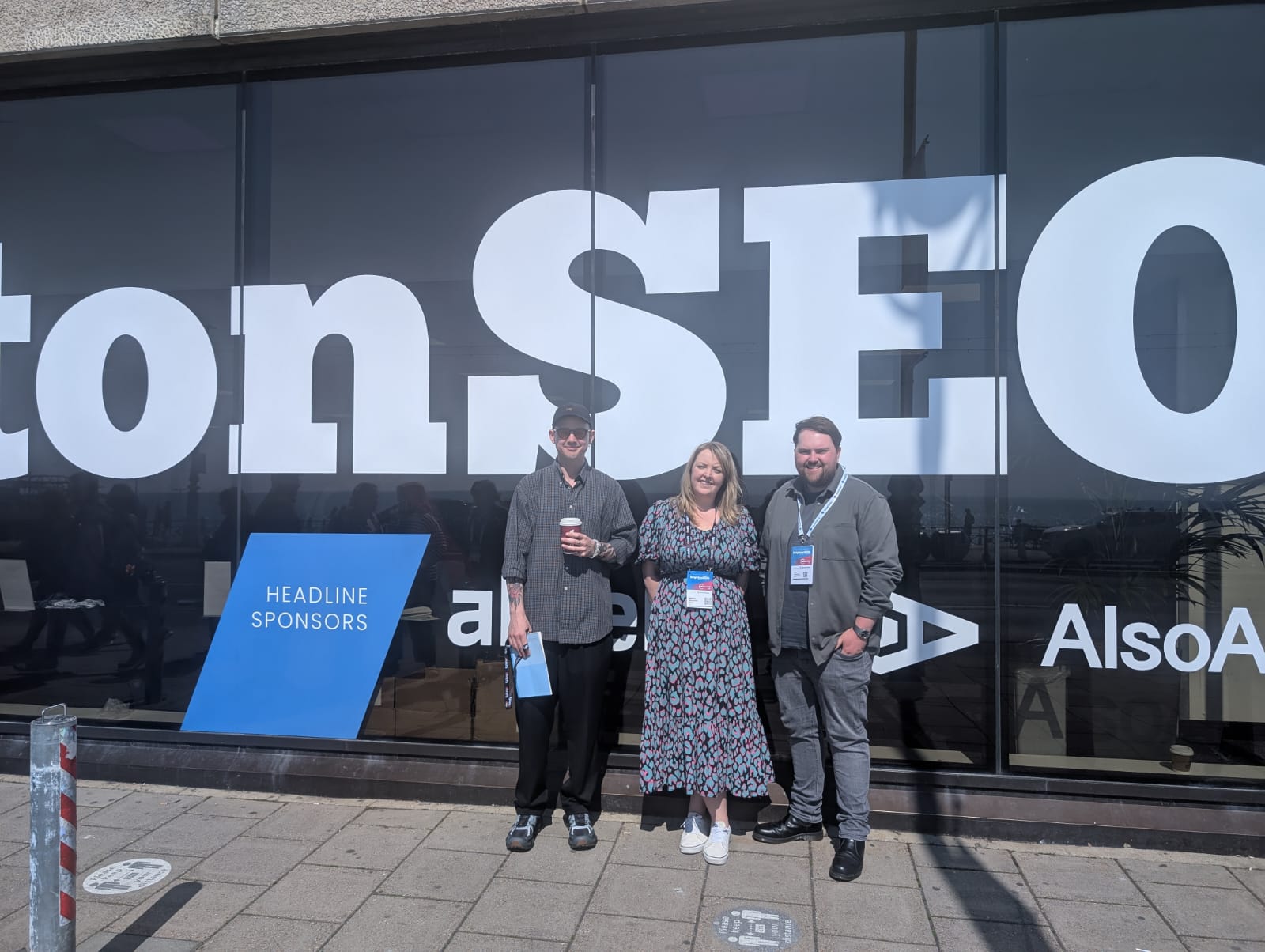The AI tsunami at brightonSEO and Hero Conf: Navigating the waves of change

By Sean Sweeney, Digital Acquisition Lead
Having spent over a decade immersed in the ever-evolving world of SEO, from the trenches of keyword research to leading digital acquisition strategies for the full-service marketing agency Aspectus Group, I’ve witnessed firsthand the seismic shifts that shape our industry. The recent brightonSEO and Hero Conf felt particularly charged, buzzing with a singular, all-consuming topic: Artificial Intelligence.
The future of SEO in an AI world
The air crackled with questions: How will consumers truly integrate AI into their information-seeking journeys? Will the ubiquitous search engine as we know it be relegated to a digital dinosaur? And, perhaps most pressingly for us search marketers, how do we adapt our skills and strategies to not just survive, but thrive in this AI-driven landscape?
The discussions were multifaceted, offering glimpses into both the exhilarating potential and the unsettling uncertainties that AI presents. On one hand, the promise of automation for mundane tasks like reporting insights and accelerating initial research is undeniably attractive. Imagine the hours reclaimed, the deeper dives enabled by AI’s analytical prowess. This positive outlook painted a picture of a more efficient, data-informed future for SEO professionals.
AI’s black hat potential
However, a darker undercurrent ran through many of the talks. The emergence of AI has seemingly opened a Pandora’s Box of potentially unethical practices. Emma-Elizabeth Byrne’s talk, in particular, sent a chill down my spine. The proposition of creating fake author personas to manipulate search engines and AI operators into perceiving content as credible is, in my professional opinion, a blatant “black hat” tactic. It’s a deliberate act of deception, fundamentally lying to users. Thankfully, an article written by Rob Waugh, in the Press Gazette has already shed light on this tactic finding several incidences of AI being used to support the generation of fake experts in everything from pastry, dentistry and budgets to relationships and astrology.
This is not a game. Especially within Your Money, Your Life (YMYL) sectors like medical and finance, the implications of misleading content, regardless of its source, is deeply concerning. Misinformation can have tangible, detrimental consequences with the World Economic Forum predicting that “the top risk in 2027 is Misinformation and disinformation”, in their Global Risks Report 2025.
My years of experience in SEO have instilled in me a firm belief that Google, while constantly evolving, ultimately prioritises user trust. The rigorous checks within E-E-A-T (Experience, Expertise, Authoritativeness, Trustworthiness) are there for a reason, and I foresee even stricter scrutiny on author credibility in the AI era. History has shown us that Google’s core algorithm updates eventually catch up with and penalise such manipulative tactics, often with significant and lasting impact.
The human ethical compass that will dictate AI’s evolution
In contrast, Akash Hashmi’s perspective offered a much-needed ethical compass. He rightly emphasised the fundamental responsibility of search marketers: to ensure users receive valuable and transparent answers. This resonates deeply with my own professional ethos. Our role should be to facilitate genuine connections between users and helpful information, not to fabricate authority through deceptive means.
The data shared by various speakers painted a fascinating, if somewhat perplexing, picture of the current AI landscape. The statistic that 63% of websites are already encountering AI crawlers, yet this traffic only accounts for a minuscule 0.17% of their total, highlights the nascent stage of AI’s direct impact on website traffic. Furthermore, the March Google update served as a stark warning. Websites churning out low-quality, AI-generated content, particularly those attempting to revive expired domains with irrelevant information, faced delisting and even manual penalties. This demonstrates that search engines are actively identifying and penalizing the abuse of AI for content generation.
The need for Google to be transparent on AI guidelines is growing
Madeleine Lambert’s impassioned plea for greater transparency from Google regarding AI content indexing guidelines echoed the widespread unease within the community. The fear that algorithm updates, while targeting blatant abuse, might inadvertently impact legitimate content creators is palpable and understandable, especially when livelihoods are at stake.
Ultimately, brightonSEO and Hero Conf underscored a significant truth: the future of SEO in the age of AI is shrouded in uncertainty. While the potential for efficiency and automation is enticing, the ethical considerations and the ever-present threat of algorithm shifts loom large.
Always put the user first
In my experienced opinion, honed over a decade in this dynamic industry, remains that considered creativity, driven by genuine expertise and a deep understanding of user intent, will always triumph over fabricated AI content. While AI can undoubtedly be a powerful tool in our arsenal, it is just that – a tool. The human element, the strategic thinking, the nuanced understanding of audience needs, and the commitment to ethical practices will be the cornerstones of successful digital acquisition in the years to come. We must embrace the efficiencies AI offers while steadfastly upholding the principles of transparency and genuine value for the user. That being the case, our SEO director, Oliver Wells has written a comprehensive article on the five proven SEO Strategies amid AI uncertainty.
The waves of AI are here, and it’s our responsibility to navigate them with both innovation and integrity. With that being said, I believe it’s important to be transparent and disclose that parts of this article were created with the use of automation technology. However, I reviewed, edited, and fact-checked the material before publication.

